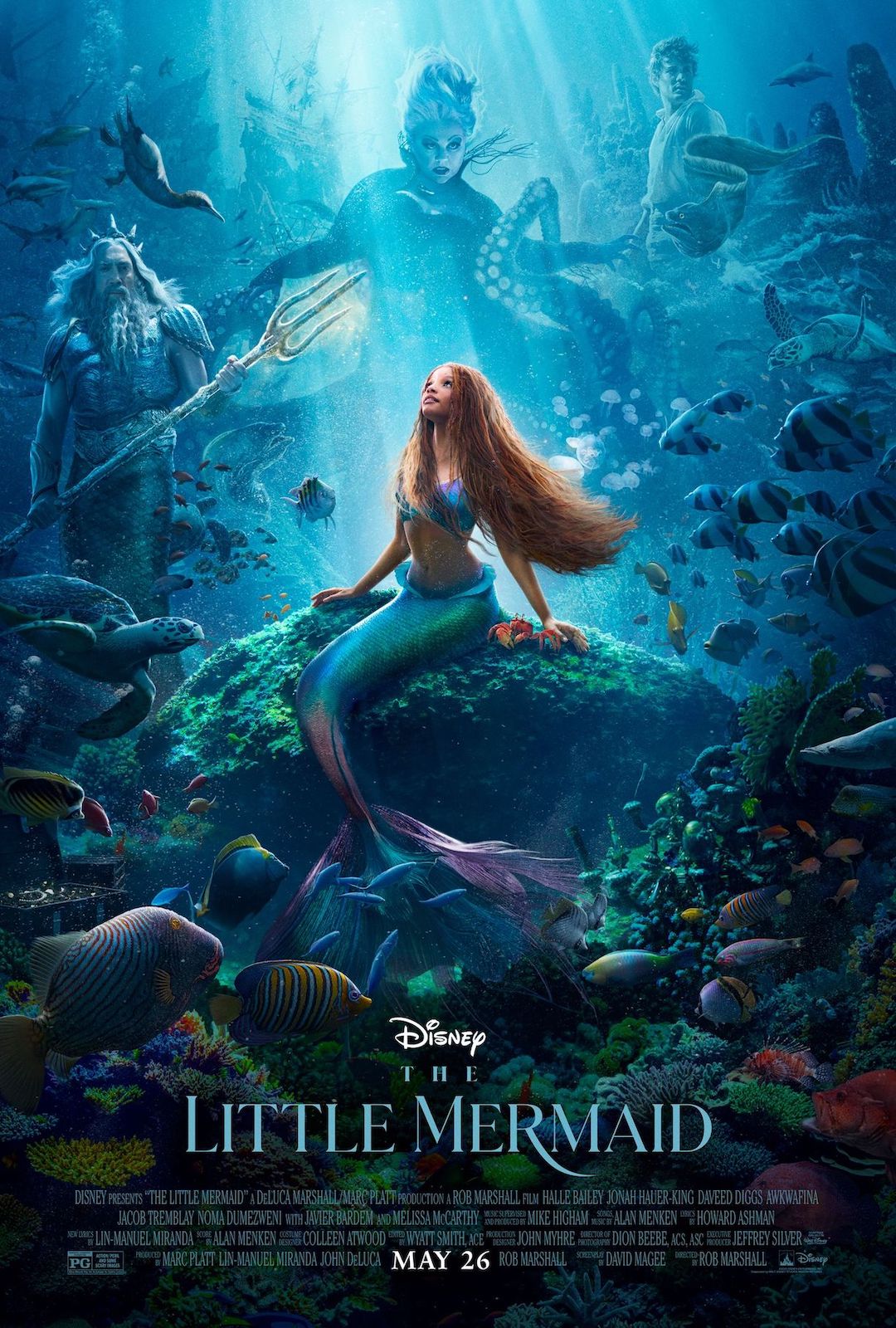/ ‘The Little Mermaid’ Becomes a Blockbuster in the Philippines Amid Racist Backlash Elsewhere in Asia
‘The Little Mermaid’ Becomes a Blockbuster in the Philippines Amid Racist Backlash Elsewhere in Asia

The live-action remake is the biggest film of 2023 in the Southeast Asian country: "They really loved Halle Bailey's performance as Ariel," says Disney's head of studios in APAC, John Hsu.
The Little Mermaid may have bombed in some key movie markets in Asia, but in the Philippines, it has been a splashy success. Disney’s live-action remake of its 1989 animated classic is currently the biggest blockbuster of the year in the Southeast Asian country, having earned $5.8 million and surpassed Hollywood’s two biggest global hits of the year: Universal’s The Super Mario Bros. Movie ($2.2 million) and Marvel’s Guardians of the Galaxy Vol 3 ($4.7 million).
“The Philippines, obviously, is a standout market for us,” says John Hsu, Disney’s senior vp studio business in Asia Pacific. “It’s rare, but it’s the biggest territory for The Little Mermaid in Southeast Asia by far, our third highest-grossing market in Asia-Pacific behind Australia and Japan, and our 11th highest-grossing territory globally,” he says.
Elsewhere in Asia, the picture hasn’t been so bright. In the vastly larger markets of China and South Korea, The Little Mermaid has majorly underperformed amid a racist backlash on social media over the casting of Black actress Halle Bailey in the role of Ariel. The film has earned just $3.6 million in China and $5 million in South Korea — a fraction of what other Disney live-action remakes have grossed in those markets. The Jungle Book (2016) and The Lion King (2019) were outright blockbusters in China, earning $150 million and $120 million. In South Korea, Aladdin (2019) took $91 million and Beauty and the Beast (2017) brought in $37.5 million. Disney has declined to comment on The Little Mermaid’s performance in those countries.
In the Philippines, not only were such negative elements absent, but Bailey’s performance was widely embraced by Filipino filmgoers, according to Hsu. “They really loved Halle Bailey’s performance as Ariel, and they really liked her as the new princess,” he says.
“The Little Mermaid is a notable standout for the Philippines market this year,” says Rance Pow, president of Artisan Gateway, an exhibition industry consultancy specializing in Asia. Pow points out that the film is doing better than any other Hollywood fare this year, but it still won’t reach the heights of other Disney live-action remakes released in the Philippines pre-COVID — Aladdin earned $11 million there, and The Lion King took in $10.2 million.
“This might be because the Philippines is still re-ramping,” as the theatrical market continues to recover post-COVID, Pow says.
In the U.S., The Little Mermaid has been doing good business despite protestations by some regarding Bailey’s casting. The movie has earned north of $257 million since its May 24 release. Box office analysts believe it could top out at $350 million domestically, close to Aladdin’s domestic haul of $355.6 million.
Japan is another major market where The Little Mermaid is showing some promise. It has earned $10.3 million there since its launch on June 9, and last weekend beat Sony’s Spider-Man: Across the Spider-Verse and Warner Bros.’ The Flash. Word of mouth for The Little Mermaid is looking positive, but Japan is a famously slow-burn market, so it will take another few weeks to make clear how far the film can climb.
Hsu sees several contributors to The Little Mermaid’s outsize success in the Philippines: the country’s youthful demographics, strong nostalgia in the market for the original Disney animation, and an abiding love of music and singing that runs deep through Filipino culture. And he credits Disney’s Philippines-based marketing team for leaning into these factors to mount an especially effective campaign for the film.
“The did a comprehensive campaign across all media, but they really focused on social media, leaning into the music, nostalgia and Princess Ariel,” he says, noting that Bailey’s rendition of “Part of Your World,” the lead single from The Little Mermaid soundtrack, hit No. 1 on Spotify in the Philippines and has over 13 million plays there.
“Post-COVID, internet usage in the Philippines has increased significantly,” he adds. “So the team went very heavy on TikTok, recruiting influencers to promote the film by performing their own versions of Ariel’s songs. That really drove awareness and word of mouth for the film, which culminated in the strong opening.”
Some of the viral comedic posts created by Filipino TikTok influencers, using the branded Little Mermaid effect created by Disney, are below. Elsewhere in the Manila area, fan enthusiasm manifested in moviegoers dressing up in mermaid and merman cosplay to attend special screenings of the film.








